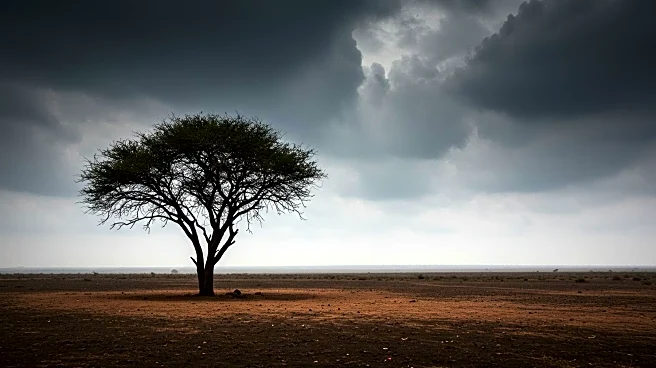What's Happening?
A report by the Integrated Food Security Phase Classification (IPC) has determined that parts of Gaza are experiencing famine conditions, with over 500,000 people facing catastrophic levels of food insecurity. The situation is expected to worsen, with projections indicating that nearly 641,000 people will face Phase 5 conditions by the end of September. The food crisis has intensified following the ceasefire between Israel and Hamas, exacerbated by a blockade on aid into Gaza. The IPC report highlights the dire humanitarian situation, with increasing malnutrition-related deaths and severe food shortages.
Why It's Important?
The declaration of famine in Gaza underscores a severe humanitarian crisis that demands urgent international attention and intervention. The blockade on aid has significantly impacted food availability, leading to widespread hunger and malnutrition. This crisis affects not only the immediate health and survival of the population but also has long-term implications for regional stability and peace efforts. Humanitarian organizations and governments must prioritize aid delivery and address the root causes of food insecurity to prevent further deterioration of conditions.
What's Next?
International bodies, including the United Nations, may need to formally declare a famine to mobilize resources and coordinate relief efforts. Humanitarian organizations are likely to increase their presence and operations in the region to provide food and medical aid. Diplomatic efforts may be necessary to negotiate the lifting of the blockade and ensure the flow of essential supplies into Gaza. The focus will be on alleviating immediate suffering while working towards sustainable solutions to prevent future crises.









